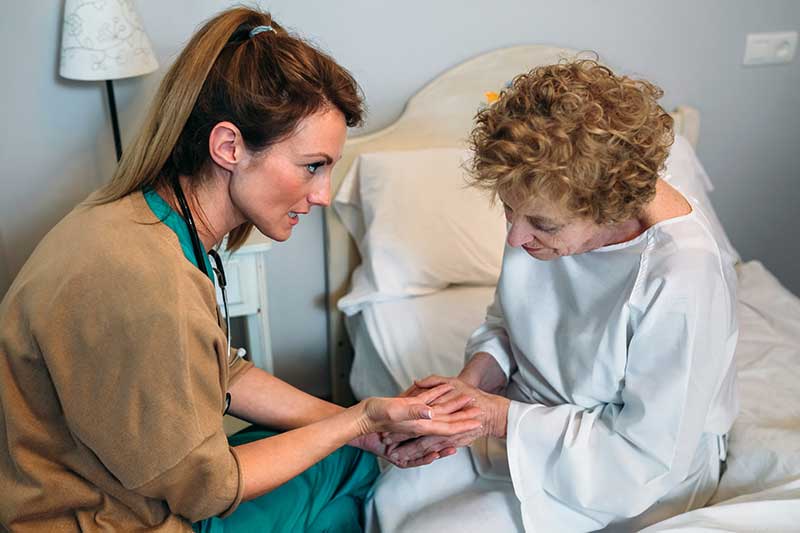Navigating the complexities of end-of-life care is a deeply personal journey for patients and their families. It’s a time when the focus shifts to ensuring comfort, dignity, and peace. This condensed guide offers insights to help families understand and manage the final stage of their loved one’s life with grace and compassion.
Understanding End-of-Life Care
End-of-life care is about providing comfort and support to individuals as they approach the final phase of life. This care is not just about managing physical symptoms but also addressing psychological, social, and spiritual needs, helping patients to live their remaining time as fully as possible.
Conversations and Care Decisions
Open communication is the cornerstone of effective end-of-life care. It’s crucial to discuss wishes concerning treatment preferences, living arrangements, and desired interventions or the lack thereof. These conversations help to ensure that the care provided aligns with the patient’s values and wishes, allowing for a more personalized and respectful approach to care.
Pain Management and Comfort
Pain and symptom management are central to end-of-life care, aiming to maintain the best quality of life for the patient. This involves a combination of medication and complementary therapies, tailored to provide relief and comfort. A skilled care team will adapt treatments to suit the changing needs of the individual.
Emotional and Spiritual Support
The emotional and spiritual dimensions of end-of-life care are as significant as the physical aspects. Patients and their families benefit from counseling and spiritual support to navigate the complex emotions of this time. Hospice services often provide such support, helping families cope with grief both before and after their loved one passes away.
Legal and Financial Planning
It’s essential to have affairs in order, such as advanced directives and wills, which ensure that the patient’s wishes are respected and the family’s burden is eased. This planning can prevent unnecessary stress, allowing the family to focus on their time together.
Family Caregivers and Bereavement Support
Family caregivers play a critical role in end-of-life care, often at the cost of their well-being. It’s vital to support caregivers through respite care and ensure they have access to resources that help them cope. Additionally, bereavement support services can offer a helping hand through the grieving process, helping families heal after the loss of a loved one.
Cherishing Final Moments
The end-of-life period can also be a time to create meaningful moments that celebrate the patient’s life. Sharing stories, enjoying quiet companionship, and simply being present can offer profound comfort to both the patient and their loved ones.
In summary, navigating end-of-life care is about providing a serene transition that respects the wishes and needs of the individual passing. From managing physical discomfort to supporting emotional and spiritual well-being, the goal is to ensure that this final chapter is marked by peace and dignity. By understanding the process and utilizing available resources like hospice care, families can find support and solace during this challenging time.













